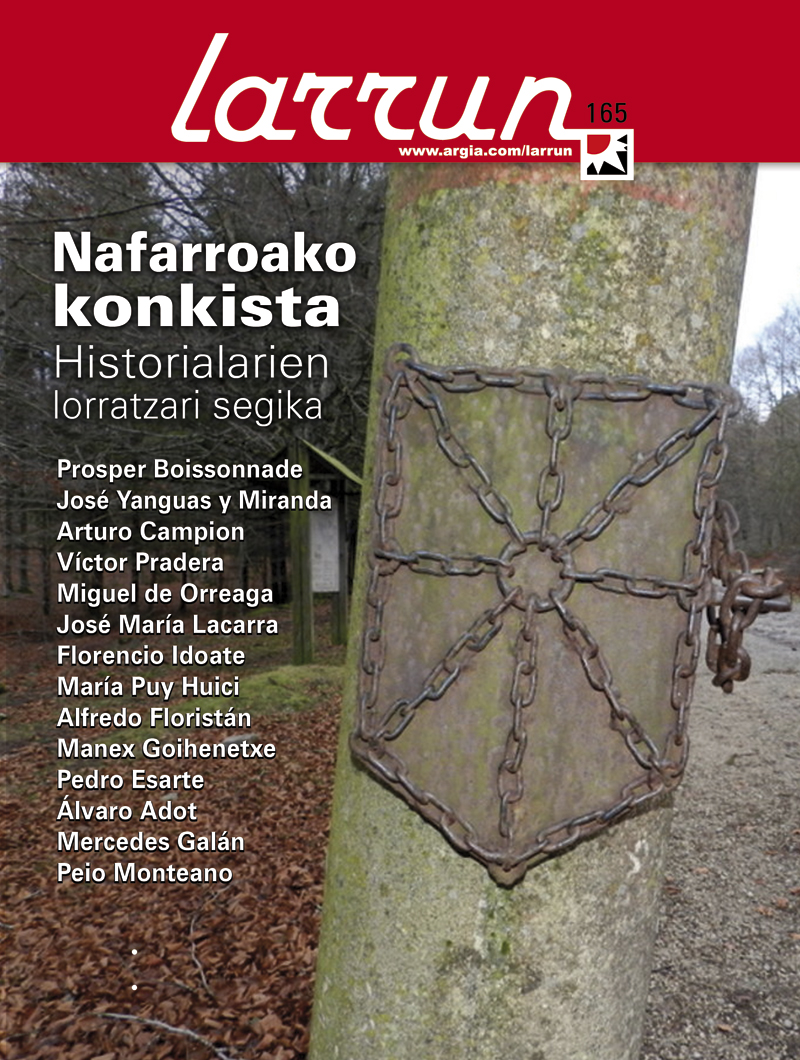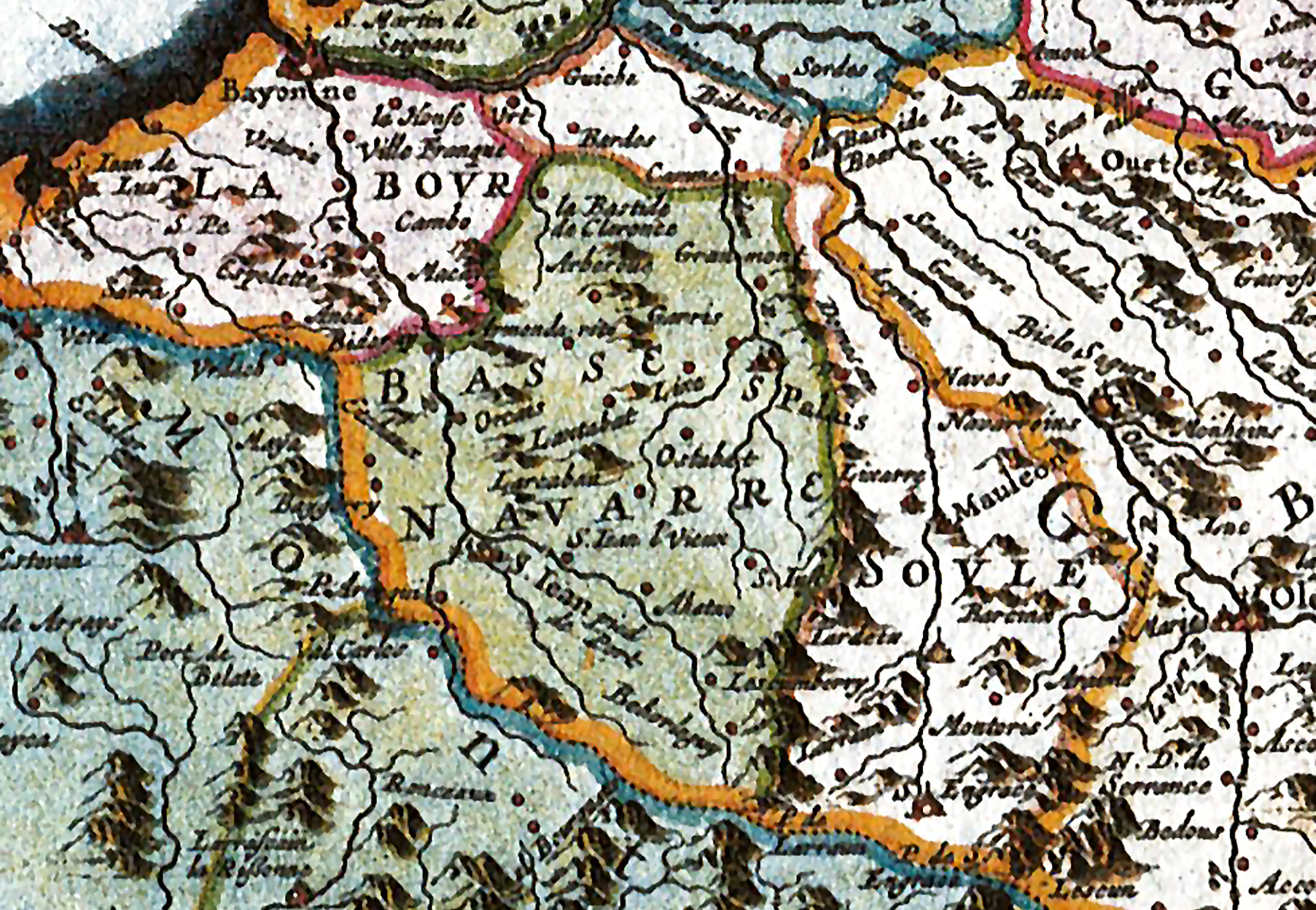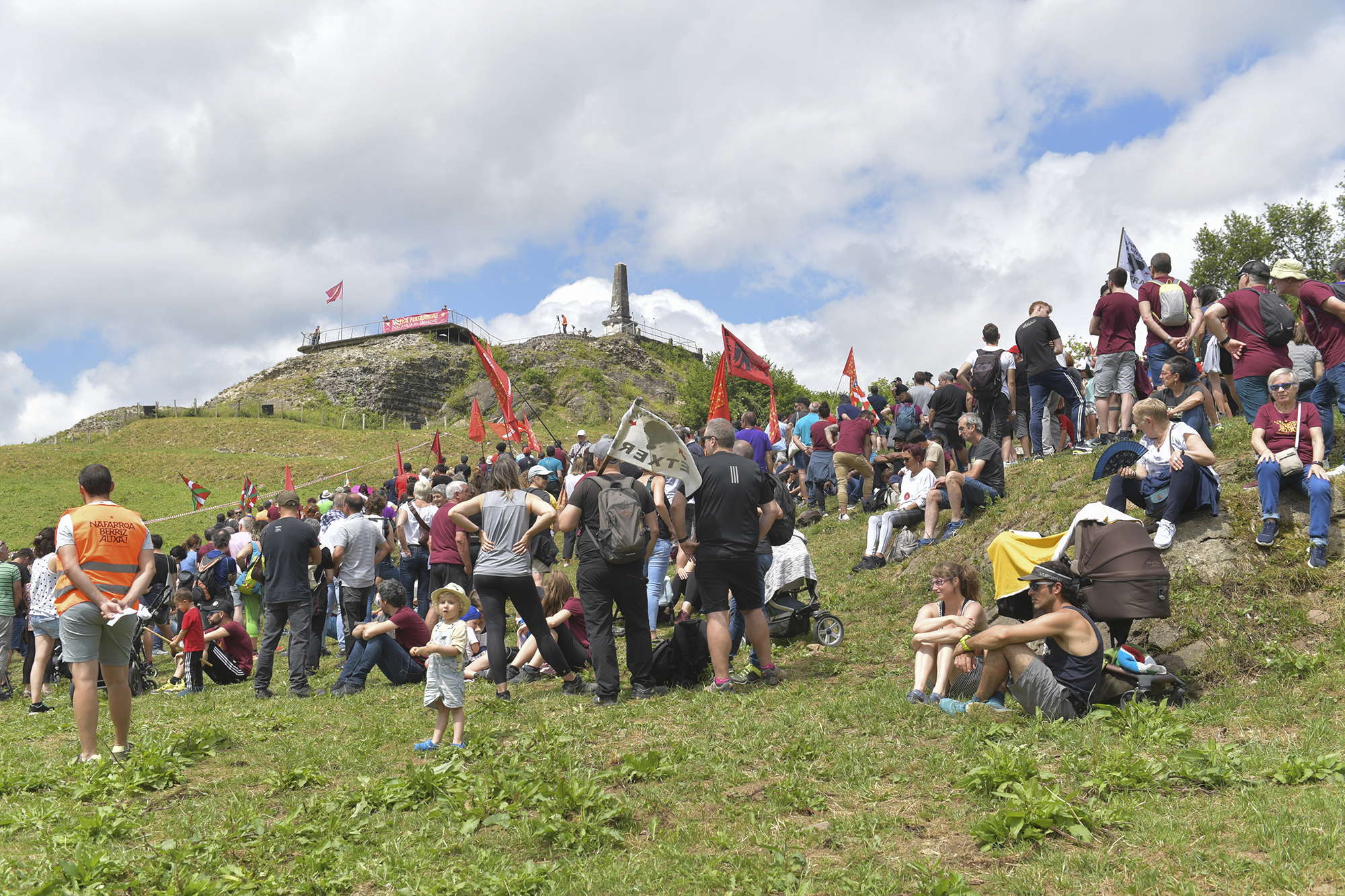"Navarre became totally Spanish, while still being Navarre"

Tudelano José Yanguas and Miranda won the position of Navarre Archivist in 1830. For ten years he had at his disposal documents to deepen paleography and history. He then devoted himself to politics, and the works published on the history of Navarre served him for the debate of the foral reform of 1841. Yanguas and Miranda were very liberal – absolutism imprisoned him for some time in 1823 – and although he defended the foral character of Navarra, he thought that the Cortes system should “adapt” to the new constitutionalism, that is, stop being a kingdom, becoming a province.
Yanguas and Miranda were the principal intellectual of the Navarros fuerist liberals and their discourse on the conquest left a profound mark. In his view, it is false that the Pope excommunicated the Navarran kings. Therefore, it was not a just conquest, but made “as the strongest”. However, Fernando the Catholic swore the strife and that “pact” was what could not be violated by Yanguas and Miranda. In a way, the supposed “Concerted Law” of 1841, is reflected by Tudela’s in that treaty of 1512.
All of these ideas were perfectly captured in a work. In 1843 he republished the famous chronicle written by Luis Correa: History of the Conquest of the Kingdom of Navarre by the Duke of Alba Correa observed the conquest in the lap of Castilian troops. According to Yanguas and Miranda it is “the most complete story that has been written about the conquest of Navarra”. Well, the editor added to Correa's book an interesting preamble, stripping his vision of conquest. The following passages have been translated from this foreword and the full text in Spanish can be consulted, among others, on the website of the Government of Navarra http://bit.ly/IVGwAM.
“What most helped to strengthen the hegemony of the Castilian kings in Navarre was the behavior of the Catholic, with a fundamental policy, which seems to have gotten into the genius of the Navarros, and found a way to model his warrior and rebellious spirit: According to his capitulation with the Duke of Alba, he not only swore the preservation of the excerpts, but also ordered that Navarre be kept as a separate kingdom, even if it was incorporated into Castile: he was faithful to his treaties and, after the conquest, generous with his enemies and cimbreros, thus opening the way to the pretension of forgetting the old national independence. And even though the pride of the Navarros and Navarre supported him over and over again, the colossal power Carlos V.aren, successor of Fernando the Catholic four years later, resisted, imitating his grandfather’s policy. Therefore, the Navarros forgot and abandoned their legitimate dynasty forever, even more so that of Juana de Albret, daughter of Enrique and nieta of king Juan, since he became a Protestant: then Navarre also became totally Spanish, while still being Navarre; and it has remained linked to the religious and national spirit of the Peninsula, more as an ally than as a monarch.”
Immersed in the war against the community lords and churches, in 1521, Castile obtained the help of his brother-in-law Enrique de Navarra II.ak, King Francisco I of France, to recover the kingdom of Navarre invaded, conquered and occupied nine years earlier.
Parents Enrike... [+]
Memoria eta aldarrikapen eguna izan da larunbatean Amikuzeko hiriburuan. "Sekulan baino gehiago, gure izanetik aurkitu indarraz, bihar gu girena hazi", izan dira Zabalik elkarteko presidentearen hitzak, Nafarroa Bizirik eguneko ekitaldi ofizialean.
The ideological heirs of the conquerors of the Kingdom of Navarra are today the political parties that manage means such as patriarchal intellectual production and EITB. These heirs continue with the colonization process of Navarre, distorting historical contexts and negating... [+]
The castle of Amaiur (1522), in Baztán, was the last strength of the resistance against the Spanish conquest of the Kingdom of Navarra. The rebels, with their courage, also dominated the kingdom of Spain, challenged by their hearts, sought to rise up against the... [+]
You will easily see Spaniards of a certain age who want to underestimate or reduce the severity of something: “More was lost in Cuba,” recalling the loss of the remains of the colonial empire in 1898. Hungarians also have a similar expression, which is used in the same sense... [+]




















